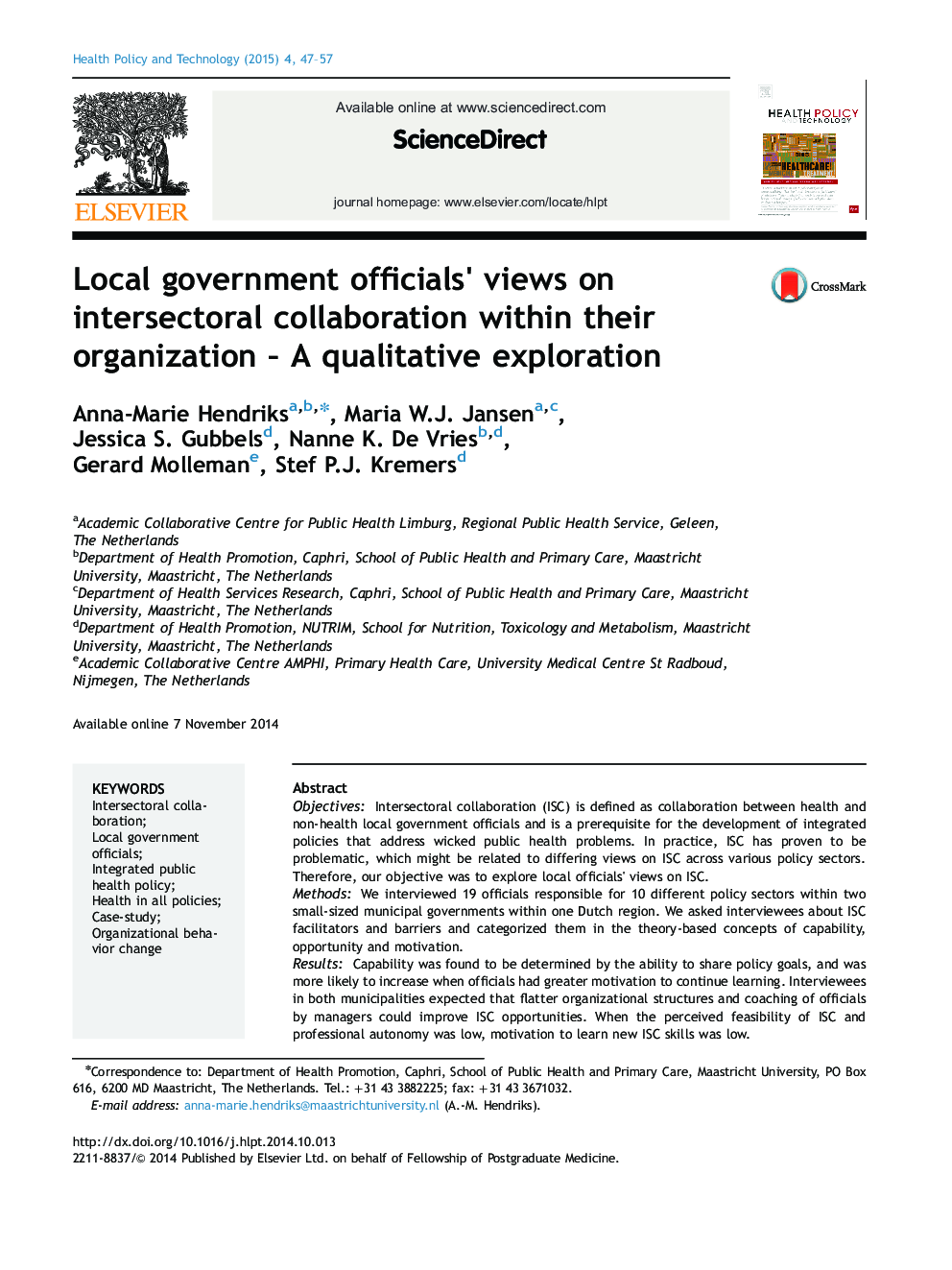| کد مقاله | کد نشریه | سال انتشار | مقاله انگلیسی | نسخه تمام متن |
|---|---|---|---|---|
| 3327246 | 1212163 | 2015 | 11 صفحه PDF | دانلود رایگان |
• Intersectoral collaboration (ISC) is perceived as an appropriate tool to address wicked problems.
• Implementing ISC requires more collaborative organizational structures.
• Leaders within local government should look behind officials’ defensive reasoning during change.
• Heads of departments and town clerks should show leadership and coach their officials during ISC.
• Health officials should pro-actively reframe health goals in non-health sector’s terminology.
ObjectivesIntersectoral collaboration (ISC) is defined as collaboration between health and non-health local government officials and is a prerequisite for the development of integrated policies that address wicked public health problems. In practice, ISC has proven to be problematic, which might be related to differing views on ISC across various policy sectors. Therefore, our objective was to explore local officials׳ views on ISC.MethodsWe interviewed 19 officials responsible for 10 different policy sectors within two small-sized municipal governments within one Dutch region. We asked interviewees about ISC facilitators and barriers and categorized them in the theory-based concepts of capability, opportunity and motivation.ResultsCapability was found to be determined by the ability to share policy goals, and was more likely to increase when officials had greater motivation to continue learning. Interviewees in both municipalities expected that flatter organizational structures and coaching of officials by managers could improve ISC opportunities. When the perceived feasibility of ISC and professional autonomy was low, motivation to learn new ISC skills was low.ConclusionIn the view of government officials, ISC is an appropriate tool to address wicked public health problems, but implementing ISC requires flatter organizational structures, merging of departmental cultures and leadership by heads of departments and town clerks in order to decrease officials׳ fears of losing professional autonomy. Public Health Service officials can play a more active role in merging cultures by increasing understanding about the multi-dimensionality of public health and reframing health goals in the terminology of the non-health sector.
Journal: Health Policy and Technology - Volume 4, Issue 1, March 2015, Pages 47–57
